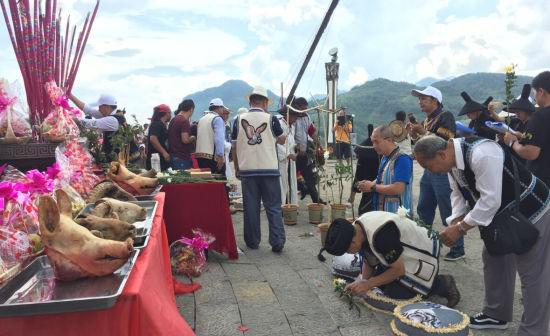The gospel is consistent, however, there exist multiple methods to spread it. In circumstances where idolatry is prevalent, how can we preach the gospel? Over time, the church and its congregation have explored and implemented numerous effective strategies.
Most folk beliefs derive from ancestral and nature worship, interspersed with clan customs. In the hometown of Pastor C, who was born in the 1980s, ancestral shrines and temples are present everywhere. Pastor C believed that local churches could take advantage of customary attention paid to the wedding and funerary rites, thus seizing the opportunity to promulgate the gospel. Initially, the church should first pay attention to the marriage and memorial services held by believers in the church, providing a platform to witness the grace and offer comfort to their families.
Second, believers should avail themselves of the opportunities to participate in non-Christian weddings and funerals. Pastor C mentioned that he attended his third uncle's youngest son's wedding. His third uncle and his family worshiped other idols and were displeased with his faith in Jesus. However, thanks to Pastor C's impeccable behavior towards his family's elders, his third uncle invited him to speak at the wedding because the original speaker could not attend. He advised Christians not to emphasize sin and salvation on such an occasion to spread the gospel, saying "Just talk about the biblical view of marriage and of the roles of husband and wife." After his speech, his third uncle remarked, "You are different from those who worship other gods, and your Christianity is admirable."
Pastor C understood that where idolatry dominated, individuals possessed "faith" in themselves. He first reminded us that evangelization must avoid proclaiming, "My God is true while yours is false. You are mistaken." He pointed out, "We are to preach the good news, not to condemn others."
Instead of controversial debates about right or wrong, one should lead them to contemplate what "God" represented. Pastor C requested his uncle and cousin, who had been fortune-telling individuals at the Xuanwu Temple for years, to consider the divine attributes of Jesus Christ. He asked them, "Do you think that your god is the true god? What are the characteristics of the true God?" Following this, he asked, "If your god is the true god, why does no one believe in him?" After this, he expounded on the reality of sin and presented the gospel of salvation. As Pastor C narrated, although his daily life had already served as a witness, this conversation about "God" was fundamental to his uncle and cousin's conversion.
Pastor C believed that idolaters already believed in the existence of God, and the key was to guide them in a suitable way to know what the true God was. With an attitude of inspiration rather than conviction and coercion, let them think and seek spontaneously, and perhaps there will be pleasant surprises.
Most of the people the church visits are believers, but the visit and care the church carries out is crucial in attracting non-believers.
Sister G is a doctor. On the occasion of saving lives and healing the wounded, she saw more human indifference. "There are many elderly people in the hospital, and in many cases, their sons are not there when they are needed," She observed. One night while she was on duty, a group of Christians came to pray for a man with advanced liver cancer. Sister G wondered why these strangers had come to visit an old man who had no connection to them. "Their love touched my heart and made me curious about what Christians really believe."
As a doctor, Sister G particularly noted that since the pandemic, many elderly people have spent several weeks or even months in hospice care, and standard medical treatment has failed to instill hope in them. What they urgently require is no longer a "cure", but psychological counseling and hospice care.
The hospital where she works is one of China’s few that set up a hospice ward early. She observed that Buddhists were regularly invited to perform services for and bless the dying in these wards. She said that churches and Christians, where possible, should also pay more frequent visits to hospital hospice units to accompany patients during their last days with dignity.
Around the world, churches typically hold evangelism meetings focused on praise, testimony, and witness themes on Easter and Christmas. Most daily services do not cater to unbelievers, but churches in S city in southern China has designated the fourth Sunday of each month as a "gathering for evangelism."
In the first three weeks of each month, local churches reminds believers to prepare for the end-of-month meeting, and urges them to invite unbelieving relatives and friends to worship together and to pray for them during that month. Family and acquaintances who visit the church for the first time formerly lack the opportunity to hear the gospel based on their original faith.
At least twelve gospel meetings a year would give non-believers more opportunities to hear the core message of salvation in this city
- Translated by Nicolas Cao








